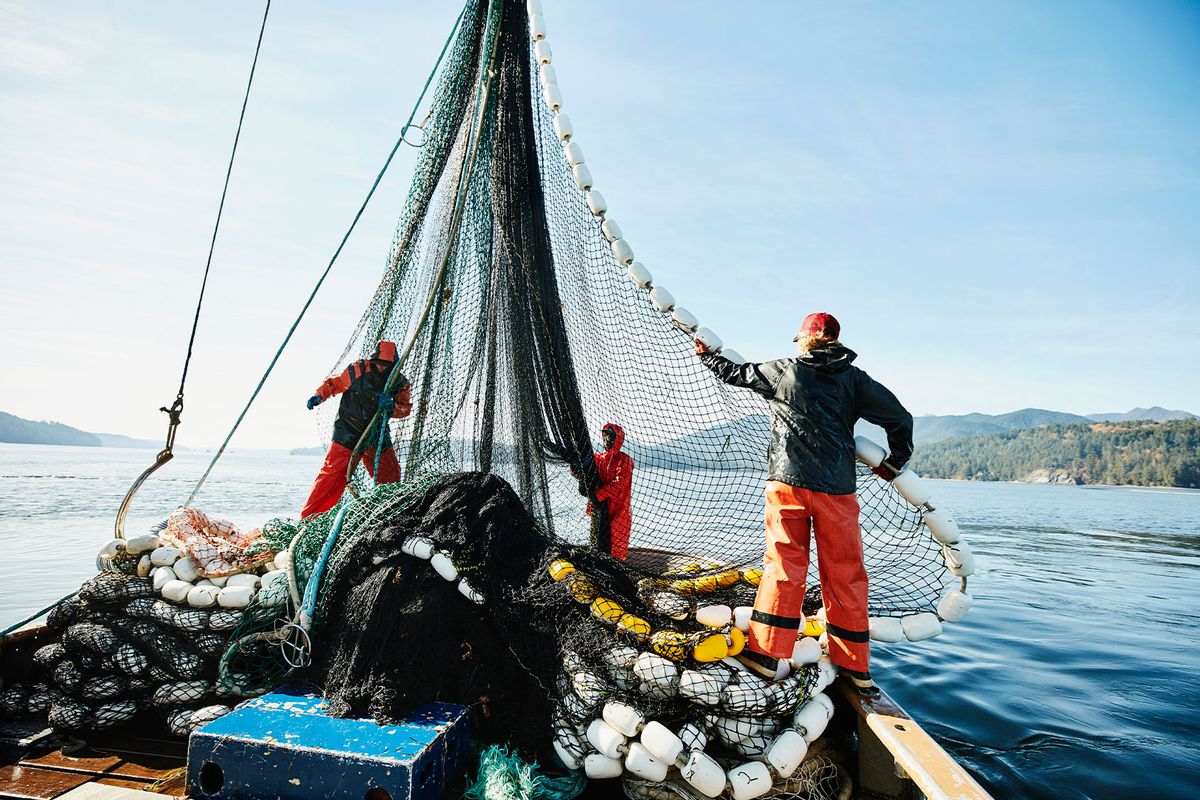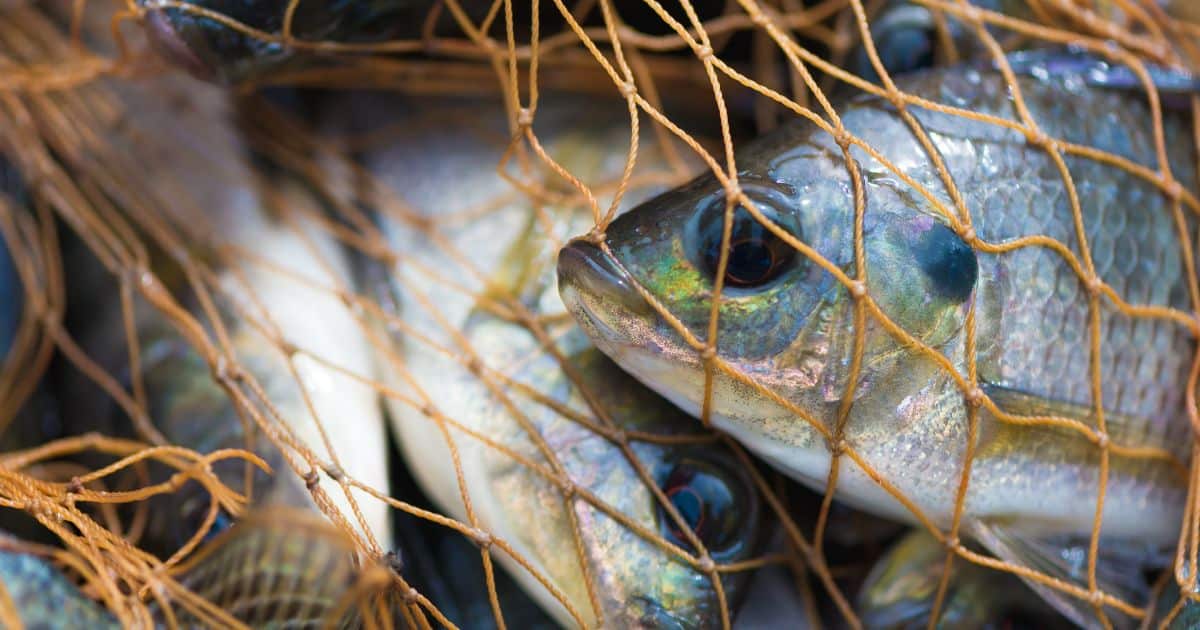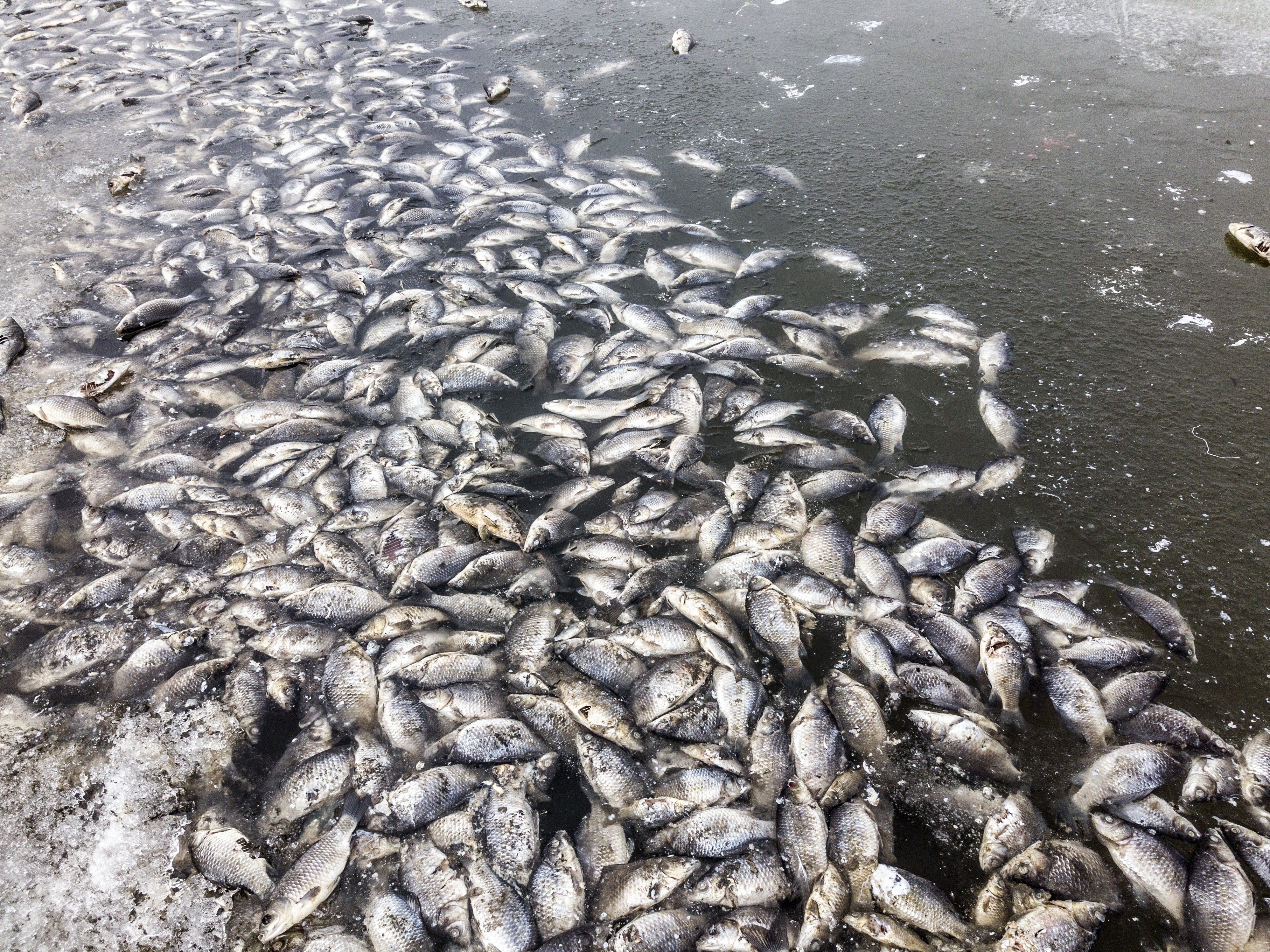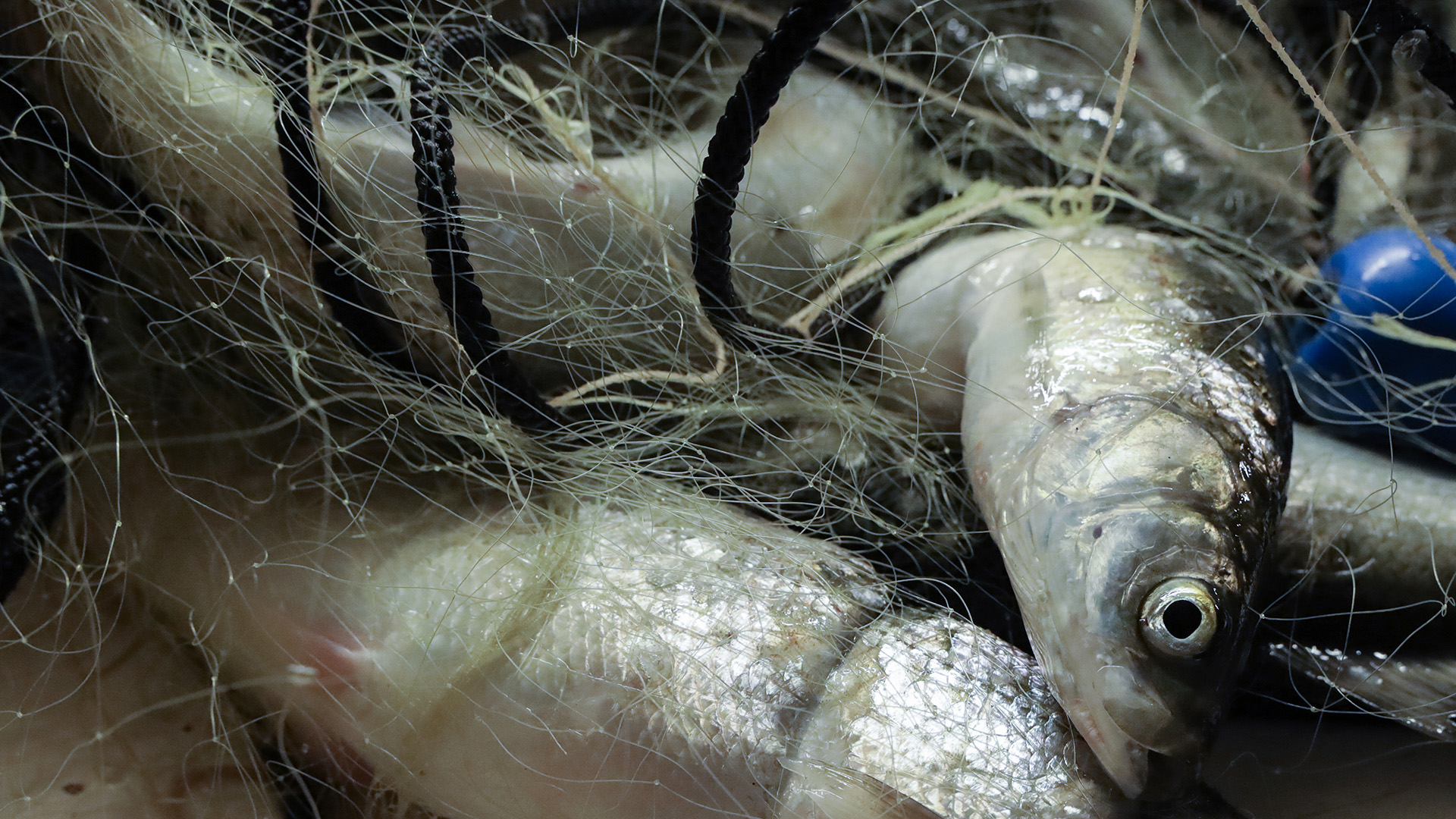Untangling catch shares with Lee van der Voo

Overfishing is a big problem, a person that necessitates seem plan to regulate. About the class of the twentieth century, several vital fisheries collapsed, major to the United States producing policies to regulate it. These policies have attained the U.S. a superior standing when it comes to fisheries administration, with a productive file of protecting against overfishing and rehabilitating fish stocks in new decades. But as we explore in our new FoodPrint of Wild Seafood report, not all management procedures have been a good results for fisherpeople and their communities. The enhancement of catch share plans, which privatize entry to fisheries and limit who is permitted to use the ocean’s sources, are of distinct concern.
In buy to recognize how capture shares have adjusted fisheries and fishing communities throughout the U.S., we spoke to journalist Lee van der Voo, who coated the subject matter thoroughly in her reserve “The Fish Marketplace.”
Can you explain the basic principles of how a catch share method operates and how it duffers from other techniques of running fisheries?
Each fishery has only a selected range of fish that can be caught in any specified yr, and which is to ensure that the subsequent yr there are nonetheless fish, so most administration procedures cap the allowable catch. The method of capping the catch, if you will, is what modifications. And catch share techniques are a single way of doing that. And they do it by getting the pie of all the fish that can be caught in a yr, dividing individuals slices and then supplying them absent in ownership, virtually like personal houses to qualifying fishermen, in some cases corporations. Effectively it really is a method that guarantees tricky caps on the fish that can be caught and it offers fishermen a large amount of discretion over when to catch. So there are a ton of arguments about how it will make fishing safer, but generating that non-public annuity out of fishing has primarily turned the current market on its head.
Not just about every fishery is below a capture share software. What are some of the major types that we know and realize when it comes to fish that’s on our plates?
Most whitefish off the East coastline are in a capture share. Alaskan crab is famously in a catch share, along with red snapper and grouper in the Gulf of Mexico. So is the clam source in New England — the chopped clams, the clam chowder clams, the little bits of fried clam that are so popular. People are the significant types that occur initially to thoughts.
Exactly where did this variety of drive towards this technique come from and how these applications bought executed?
The biggest thrust towards catch shares came from the environmental local community. There were a handful of teams, most notably the Environmental Protection Fund, that were being actually pushing this notion as a most effective-scenario circumstance for making a lot more sustainability in American fisheries.
At the time, there unquestionably were being problems there that truly desired to be dealt with. Some of the fisheries have been staying managed by narrowing the window of time in which fish could be caught. And it was so derby style and mad that a single fishery had an true beginning gun that would be fired and individuals would race off to the ocean and catch as substantially as they could.
That just led to a lot of environmental hurt and protection troubles, since when folks are dashing, if their gear receives tangled, they’re not heading to form it out. They’re likely to lower off their ropes and depart them in the ocean to ghost fish [when abandoned gear snares fish and other wildlife] and move on. Men and women in crab fisheries were being piling their boats so high with pots that they would capsize and individuals would drown.
It was really terrible, and of course the merchandise was not good. It would just be pounds and kilos and pounds of fish piling up on the dock ready to be processed, which is why, 15 many years back, you would discover a fish like halibut in the freezer aisle, flash frozen in some sort of square since there was not a great deal else you could do with that volume.
So the concept was to give fishermen an ownership stake in the fishery and that they would acquire care of it. They’ll be very good stewards mainly because they are going to have an investment interest into the foreseeable future. And in that they can be much better stewards of the ocean, they can be superior stewards of the item. But the plan behind it was probably a bit naive: like if you give most people a house, it immediately means everybody’s likely to minimize their grass. And that’s just not genuine. Not everybody’s going to slice their grass. Not everybody’s going to be a good neighbor. Some folks are likely to become landlords! And that is essentially what transpired.
What decided who received shares versus who failed to, and how has that shaken out in phrases of winners and losers for fishing communities and other folks?
Well, who received what was determined in the stop by regional fishery administration councils that regulate the fisheries in America. There are 8 of them all around the nation, and they are like any other governing entire body in that they are populated by individuals who have an desire of some type in the fishery, and occasionally that interest really influenced the route of the capture shares.
Some were being wired more in favor of business, and some extra in the environmental route, because you do see people with environmental interests on those councils. But as we typically see in the capitalist experiment that is The us, any process formed all over personal possession eventually retools by itself in the direction of the deepest pocket.
I was reporting back again in 2014 about how Lion Funds, a British non-public equity company, was form of the 1st to snatch up ownership of the ocean in the United States by acquiring Bumblebee Food items, which at the time owned Snow’s, famed for the creamy white clam chowder. Snow’s was the holder of about 23 per cent of the clams that dominate America’s canned clam business. And those legal rights migrated overseas to a British private fairness company in that 1 sale.
So these are the people that have started to attain command of the fisheries. I a short while ago noticed some fantastic reporting by the New Bedford Light-weight and ProPublica about how the billionaire Dutch family members that owns Blue Harvest Fisheries has emerged as a power in groundfish fishing off the coast of Massachusetts.
These are very rich, powerful equity groups and organizations that are obtaining obtain to the fisheries and passing the expense of proudly owning them and fishing them on to fishermen. There is certainly been profound disenfranchisement of people who employed to have a far more particular stake in fishing and seafood. All people from indigenous communities in Southwest Alaska whose record with halibut goes back again to the starting of time to tiny-boat, family members operations around the United States all over the place have been getting rid of obtain. Full communities have fallen aside in excess of that.
Are they still checking out customers of individuals similar fisheries communities? And is the major improve of ownership or have they also slimmed down the total operation?
These operations have surely develop into much more consolidated and there are much less work for confident. Economists like to refer to it as financial performance. What basically it signifies is more substantial boats with less people fishing, ideal? You know, it’s possible it truly is not significantly economically economical on a worldwide scale to have a good deal of minor boats fishing, but there are a lot of individuals whose jobs that was who would argue that that was operating out just wonderful.
I have heard individuals explain what has took place to these careers as the creation of a cubicle on a deck, proper? These utilized to be spouse and children businesses staffed by generations of uncles and cousins, and they would go out to sea in a boat that they owned and fish for their living.
And guaranteed, they can continue to get a career fishing for Blue Harvest or some fairness team if they hire the right to go out to sea. But there are situations wherever individuals fishermen are paying 80{95221ed7c1b18b55d17ae0bef2e0eaa704ccc2431c5b12f9d786c88d1acb538d} of the catch just to hire the right to go fishing, so the economic final result is absolutely not the same for people men and women.
Have any reforms o capture share systems — like ownership caps on shares — managed to prevent or reduce this economic hurt?
In my reporting, any time that I have appear across a rule that’s meant to retain boots on deck and hold deep pockets from receiving at any time further, there is certainly a sport to be played to circumnavigate it. I have not viewed wherever that’s been helpful. You can find just no enforcement.
How has the implementation of capture share courses adjusted what we see at the grocery retail outlet in phrases of cost and availability?
From a client point of view, the company of pre-assigning catch is a massive win due to the fact it makes it possible for the marketplace to be a steady thing. There’s no more time a season for this or for that, simply because truly only fish that migrate have seasons. The relaxation of them are there all the time. What we’d gotten applied to as a seasonal adjustment was genuinely just artifice in a large amount of cases from administration councils limiting seasons ahead of capture shares. Now, for instance, you can get halibut any time of 12 months, and which is the best illustration that I have of a fish that went from becoming a hideous frozen brick to a white tablecloth fish.
Of training course the rate alterations with that way too. You may well have paid some really, very small sum for the frozen brick. Now perhaps you happen to be heading to shell out rates up in the $28, $29 a pound for that fish clean-caught. These solutions seriously need to have often been extra precious, given that it truly is people today going out on the ocean and hunting the last wild protein supply in the planet and bringing it to your table. But when most of that greater price tag is captured by folks who have certainly no romantic relationship to the position of supplying that fish, that is worrisome. The purchaser is absolutely padding the revenue of fairness companies overseas at this point. I employed to have a calculation that it was only anything like 62 cents a pound of that $28 halibut essentially went to the fishermen. The fisherman’s share of the greenback is scary minimal.
With some catch share programs runnings for extra that 10 several years now, do we have stable facts on whether or not they’re shipped on ending overfishing, reducing back again on bycatch and other challenges?
I think any really hard cap on catch completely provides on environmental outcomes, and a preassigned catch — stating, “Hey, you have this significantly to capture over a 12 months” — is safer, does make better products, and the environmental outcomes are certainly there, at the very least to the extent that the science which is built into it is exact, correct? That’s usually a tiny dodgy when you’re talking about fish. We know treasured minimal about what is actually in fact likely on in the ocean.
So to that extent, pre-assignment and hard caps on catches can be helpful, of class. But does it require to be a private home? That’s the issue right here. There are methods of pre-assigning and capping capture in systems that aren’t about trading them afterwards on private markets. There are illustrations in condition fisheries wherever, when a individual decides that they want to end fishing, that share is retired back again to the community and perhaps goes to a young fisherman. There are means of holding these things in the relatives as well that individuals undertake. But with out that, granting these legal rights in perpetuity basically suggests that the share is like a house or a car or truck. Significantly like you can rent your dwelling and just disappear and go do something else, you can lease your right to go fishing. And that is in essence what’s denying younger folks opportunities and opening the doorway to personal fairness groups to occur in and make an present that is too excellent to say no to.
There are communities that have attempted to navigate that. In Petersburg, Alaska, for illustration, I observed a good deal of group discussion about strategic divestment, how to maintain assets in the group, how to make certain that a put like Petersburg retains its financial keep as a fishing community.
And there are a lot of downstream repercussions to that not getting the case. It matters regardless of whether or not there’s fishing activity in a group to preserve boat storage, boat repair products and services, bait, ice and processing facilities, and all individuals issues in switch translate to whether or not or not you’ve got got adequate individuals shelling out taxes and children in the educational facilities.
These are devastating results for communities who can’t hold on. It is not just shedding the household small business, dropping the position or having a divorce above irrespective of whether or not you stay in or get out. It is really about whether the complete city can hold on.
It impacts tourism too. Individuals truly benefit likely to these very little towns and looking at all these beautiful tiny boats and docks. It can be such a element of our record that we know quite very little about culturally, at times, and what is unfortunate about it is that most of the non-fishing population of this country is only noticing when the boats are absent and the city is just not as sweet anymore.
You know, you happen to be there to participate in ski ball and you can find not a lot else going. Which is the evolution right here. There is only so lots of adorable very little boutique lodges that can sustain what utilised to be a fishing city.
As equity groups and some others have additional and extra of a say in fisheries policy earning, does that compromise regulators ability to impose scientifically-dependent management on these fisheries as all those passions get a lot more and extra consolidated?
In specific fisheries in which amazing prosperity has consolidated, there are individuals who have gathered sufficient energy to impact the science, but I do not know that it truly is an active issue. I assume we’ve noticed it occur up a few moments in the past two a long time with regard to the pollock fishery in terms of the effects that it is really possessing on maritime wildlife populations in the Bering Sea and North Pacific, for example.
But on the whole, the method is generally working great from an environmental viewpoint. Pre-assigning and capping catch is the way to do it. There is certainly not a better substitute than that. It’s just this company of tethering it to the assets rights which is problematic.
Fishing by itself is in threat from other issues, notably local weather alter. But not from fishing.
When it arrives to individuals other threats, fishing is just not constantly the most safe expenditure. The snow crab fishery is the Bering Sea bought shut down this yr, for illustration. Are shareholders just consuming that as a loss?
Certainly. There is certainly a great quite a few of them that can weather it, specially people who are coming have gathered wealth and want to accumulate some a lot more. But there are definitely shareholders who have bought in and mortgaged on their own to the gills to have these legal rights to go fishing for the reason that they are fishermen and it can be where they want to be. But in the similar way that people today do with housing occasionally, they just get in above their head, and if it can be a bad 12 months, that drastically impacts their potential to spend for their shares. I suggest, these factors can price a few hundred thousand bucks just to have a commencing share. If you’re somebody who’s spending that with the nickels and dimes on your earnings, you can truly get in in excess of your head.
Who it truly hurts are the individuals that go and do the fishing, specially non-shareholders, due to the fact they primarily lease the correct to go fishing and spend as much as 80 {95221ed7c1b18b55d17ae0bef2e0eaa704ccc2431c5b12f9d786c88d1acb538d} of the catch to do that. And out of their 20 percent, they are even now having to pay bait and gas, so they’re the kinds that are heading to be most difficult hit if they cannot go fishing.
In the time due to the fact you’ve got wrapped up the reserve, has everything altered in the public’s being familiar with of this issue?
I desire that there were being extra public awareness about this issue. In my expertise, there is very very little. I consider that we’re commencing to see some conversations about why equity teams and multinational firms are taking possession of fisheries and how that occurred, but we’re very much down the road to be having that dialogue, and unfortunately, I assume we are previous the place exactly where we could have been obtaining much more meaningful conversations about who loses and who wins. Any one who is likely to drop has missing by now. There is likely to be more losers in the rental financial system, but in conditions of getting shares or not, it is really unhappy, but it can be performed.
When it will come to teams pushing for reform or abolishing catch shares, have they manufactured any traction?
Perfectly, it’s been genuinely interesting to watch the environmental community’s reaction to all of this. I think six several years back, 7, eight several years back, chatting about fairness was not as properly received as it is in The united states these days. And I imagine more than time there has been an acknowledgement that this is a big fairness failure.
In phrases of fairness for fishing communities, it has gone horribly wrong. And what you have witnessed about the previous 10 years or so is people in the environmental earth, primarily NGOs and also the philanthropies that fund them have stepped absent from this specific thought. The exception is the Environmental Protection Fund, which has been its largest promoter of catch shares. But in new times, even the EDF has prompt a willingness to converse about reform and what reform could possibly glimpse like.
Even then, we have arrived at this stage where it truly is going to be very difficult to untangle these property from these gigantic multinational companies and fairness companies that now individual them. Theoretically these plans are malleable, but in follow, any effort and hard work to retool this company of obtaining developed these monetary rights is just heading to switch into a drag out fight that’s stacked with lobbyists that performs out in unpleasant methods in the Capitol. Dismantling these programs would seem like get back plans on a scale that undoubtedly just isn’t COVID relief, but it would be a frightening determine. As well as, you search at a buyback system and all of a unexpected you might be funneling dollars into the pockets of people today who were being by now vacuuming all the revenue out in the 1st spot.
I consider folks are significantly more fascinated in attempting to go after answers that will do the job, which usually means modifying the place we are for the reason that we are many years into this, and regardless of its failures it can be heading to be incredibly difficult to get out. But I would say that fishermen are a whole lot like farmers in that, culturally, they are always fishermen. They would go again if there was a path to going back. And so I assume the challenge now gets how to make that route.







